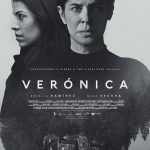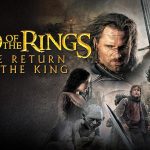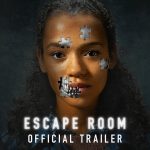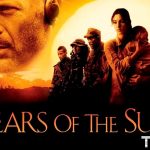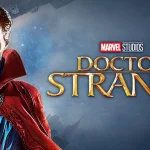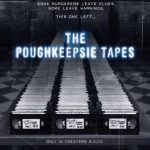“Doctor Zhivago 1965”
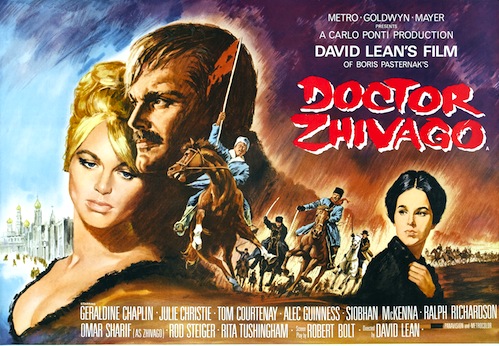
“Doctor Zhivago” (1965) is an epic romantic drama directed by David Lean, based on the 1957 novel of the same name by Boris Pasternak. Set against the backdrop of the Russian Revolution and World War I, the film weaves together a deeply personal love story with the sweeping historical events of early 20th-century Russia. It is renowned for its stunning cinematography, strong performances, and masterful direction, making it one of the most celebrated films of its time.
Plot Overview
The story follows Yuri Zhivago (played by Omar Sharif), a sensitive poet and doctor, whose life is forever changed by the turmoil of the Russian Revolution. Yuri is married to Tonya (Geraldine Chaplin), his devoted wife, but his life takes an unexpected turn when he meets and falls in love with Lara (Julie Christie), a beautiful and passionate woman who is also caught in the upheaval of the times.
As war and revolution sweep across Russia, Yuri and Lara are drawn together by fate and circumstances, even though both are committed to other people. The film explores their tumultuous love affair as they navigate the chaos of the revolution, political upheaval, and personal loss. Yuri’s inner conflict between his duty to his family and his undeniable passion for Lara is at the heart of the film’s emotional intensity.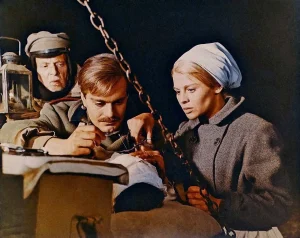
Key Characters
- Yuri Zhivago (Omar Sharif): The film’s protagonist, Yuri is a poet and physician whose personal life is deeply affected by the Russian Revolution. His character is introspective, torn between his obligations to his family and his love for Lara. Sharif’s performance conveys both the romantic idealism and tragic helplessness of Yuri’s situation.
- Lara Antipova (Julie Christie): Lara is a woman who endures great hardship, including being involved with a corrupt lawyer, Komarovsky (Rod Steiger). Her love affair with Yuri is passionate yet tragic, as their relationship is consistently disrupted by the events of the time. Christie’s portrayal of Lara is haunting and deeply emotional.
- Tonya Gromeko (Geraldine Chaplin): Tonya is Yuri’s devoted and loving wife, who stands by him through difficult times. Her character represents stability and duty, in contrast to the more fiery and unpredictable Lara.
- Victor Komarovsky (Rod Steiger): Komarovsky is a wealthy and manipulative lawyer who initially seduces Lara and remains a powerful figure in her life. He embodies the corrupt and morally ambiguous elite of pre-revolutionary Russia.
- Pasha Antipov (Tom Courtenay): Pasha is a revolutionary leader and Lara’s husband. Over time, he transforms from a naive idealist into a hardened Bolshevik, embodying the ideological shift that occurs during the revolution.
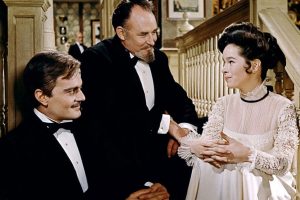
Themes
- Love and Passion: At its core, Doctor Zhivago is a love story about forbidden and unfulfilled passion. Yuri’s love for Lara represents an emotional escape from the harsh realities of the revolution, yet it is a love that is doomed from the start due to the political and personal circumstances surrounding them.
- The Impact of War and Revolution: The film vividly portrays how the Russian Revolution and the subsequent civil war tear apart not only the country but also the personal lives of its characters. The sweeping historical events serve as both a backdrop and a force that shapes the destiny of the characters, highlighting the destructive impact of war on individuals and families.
- Fate and Tragedy: The characters are constantly at the mercy of forces beyond their control, whether it’s the political upheaval of the time or their own personal desires. The film portrays a deep sense of inevitability, where love and happiness seem forever out of reach due to the tragedies of war and revolution.
- Duty vs. Desire: Yuri’s internal conflict between his duties as a husband and father, and his deep love for Lara, is a central theme. The film explores the tension between personal desires and societal obligations, especially in times of political chaos.
Cinematography and Visuals
Doctor Zhivago is often praised for its breathtaking cinematography, which captures both the intimate moments of the characters’ lives and the vast, frozen landscapes of Russia. David Lean’s use of wide shots and natural settings enhances the epic scale of the story, while also underscoring the isolation and emotional turmoil of the characters.
The use of snow and cold weather is particularly significant, symbolizing the emotional distance between the characters and the harshness of their reality. The famous image of Yuri and Lara walking through the snow-covered fields has become iconic in film history, representing the beauty and fragility of their love amidst the chaos of war.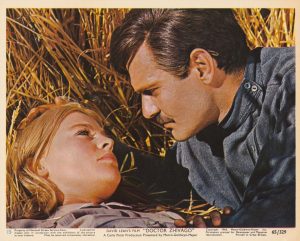
Music
The film’s score, composed by Maurice Jarre, is one of its most memorable elements. The haunting theme, “Lara’s Theme,” became synonymous with the movie and has since become one of the most recognizable pieces of film music. The score enhances the film’s emotional depth and adds to the sweeping, romantic feel of the story.
Reception and Legacy
Doctor Zhivago was both a critical and commercial success upon its release. It won five Academy Awards, including Best Adapted Screenplay and Best Original Score, and was nominated for five more, including Best Picture. The film’s length (over three hours) and its leisurely pace were points of criticism for some, but many praised its epic scope and emotional power.
Today, Doctor Zhivago is considered a classic of cinema, known for its combination of romantic drama and historical epic. Its themes of love, war, and personal conflict resonate with audiences, and its visuals and music remain iconic.
Conclusion
Doctor Zhivago (1965) is a timeless classic that masterfully blends a deeply personal love story with the vast, tumultuous events of history. With stunning cinematography, a memorable score, and powerful performances, the film continues to be celebrated for its emotional depth and epic storytelling.
